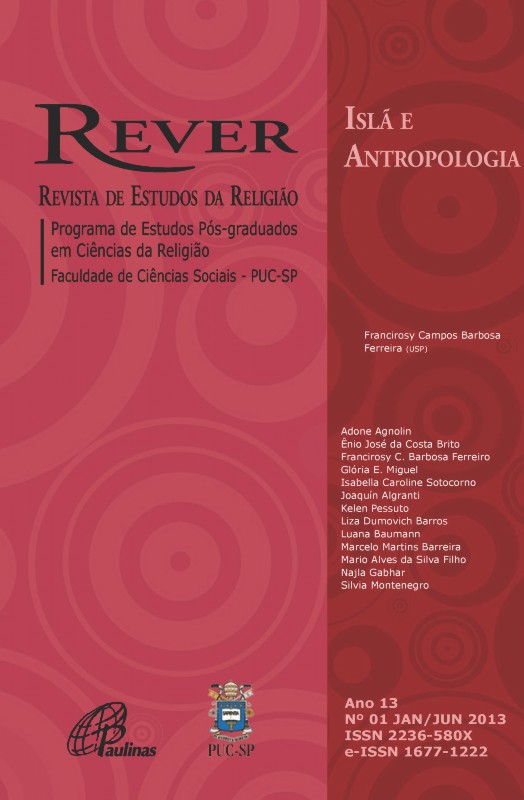The religious field from the perspective of Rorty’s neopragmatism
Keywords:
Neopragmatism, Democracy, Religion, Rorty, Cultural PoliticsAbstract
The article discusses a possible contribution of Rorty’s philosophy to the debate on the relevance of religion in a democratic society. Especially referring to the book “The Future of Religion”, and to two chapters of the book “Philosophy as Cultural Politics”, the article demonstrates how Rorty takes up the American pragmatic tradition in order to overcome both the epistemic emphasis on religion and the focus on human conversational ability. At that human level - not God or Reason -, Rorty thematizes the concept of “existence” regarding the relevance or not of a conversation about the “existence of God”. Differentiating himself from the Kantian distinction between cognitive and non-cognitive, Rorty defends another distinction and it’s utility for the liberal democratic context in which he is living in, that is, the discrimination between the public and the private sphere. Based on the summery of Rortry’s respective ideas the second part of the article synthesizes five hypotheses in favour of a pragmatic philosophy of religion.Metrics
Metrics Loading ...
Downloads
Published
2013-06-30
How to Cite
Barreira, M. M. (2013). The religious field from the perspective of Rorty’s neopragmatism. REVER: Journal for the Study of Religion, 13(1), 169–182. Retrieved from https://revistas.pucsp.br/index.php/rever/article/view/16173
Issue
Section
Seção Temática
License

This work is licensed under a Creative Commons Attribution-NonCommercial 4.0 International License.
Authors who publish in this journal agree with the following terms:- Authors retain copyright, but grant the journal the right of first publication, with the work simultaneously licensed under the Creative Commons BY-NC License.
- Authors are authorized to assume additional contracts separately, for non-exclusive distribution of the work published in this journal (e.g., publishing in an institutional repository or as a book chapter), as long as with acknowledgment of authorship and first publication in this journal.


